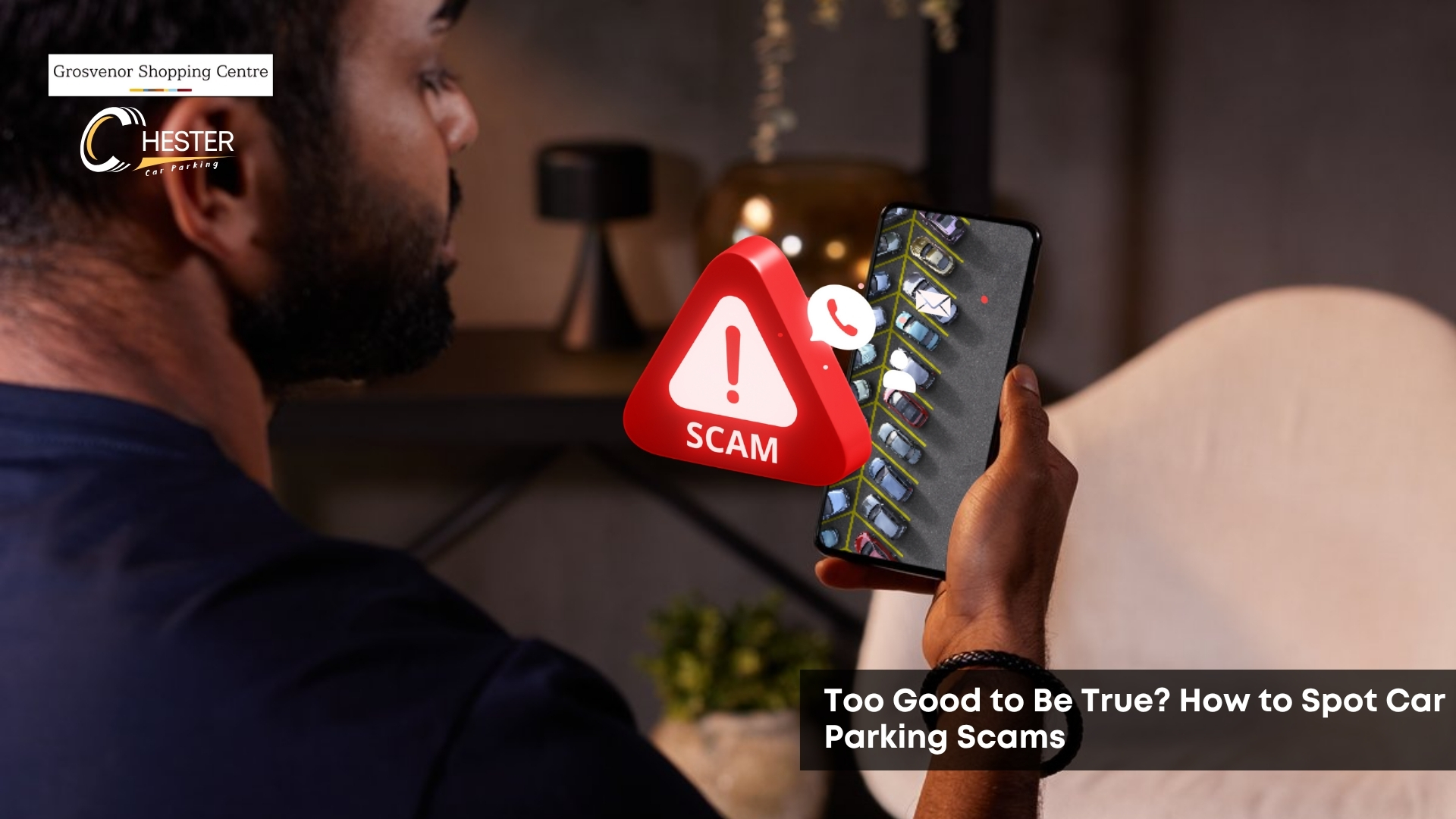Too Good to Be True? How to Spot Car Parking Scams
Have you ever felt unsure about paying for parking because something did not feel right? Car parking scams are becoming more common, catching drivers off guard in both busy cities and quiet towns. From fake attendants to tricky websites, these scams can cost you more than just money. At Car Parking Chester, knowing what to watch out for is your first line of defence. So, what are the most common scams, and how do you protect yourself without falling for them?
What Are Car Parking Scams and How Do They Work?
Car parking scams are fake schemes designed to trick drivers into paying money to unauthorised or criminal parties. These scams often target people who are in a rush or unfamiliar with the area. Scammers may set up fake payment signs, imitate real operators, or use misleading messages on parked cars. As more drivers rely on digital payments, these tricks are easier to pull off without immediate suspicion. One common tactic includes QR codes that lead to fake sites designed to steal your card details. To understand how fake attendants operate, it helps to explore how they appear so convincing.
Can You Be Tricked by Fake Parking Attendants?
Yes, fake parking attendants can easily fool drivers, especially in busy or event-filled areas. These scammers often wear high-visibility vests and carry printed tickets to appear legitimate. They may ask you to pay in cash, claiming the machine is broken or you’re in a rush. Some may even pressure you to act quickly, knowing that most people won’t ask for proof. Always check for ID and look for official signs before paying anyone in person. With many scams going digital, the next tactic might involve your phone instead of face-to-face trickery.
How Do Scammers Use QR Codes and Mobile Payments?
Scammers use fake QR codes to redirect drivers to imitation websites where payment details can be stolen. These codes may be stuck over genuine machine stickers or printed on signs that look official. Once scanned, the site may request card information or display a false confirmation message. Because mobile payments are fast and familiar, many drivers don’t pause to check the web address. It’s always safer to use well-known parking apps or follow the instructions listed directly on the machine or display board. But digital scams don’t stop there; bogus websites are just as dangerous.
Are Bogus Parking Websites Stealing Your Card Details?
Yes, fake parking websites are designed to mimic real ones and collect your payment data without your knowledge. These sites may appear through QR codes, text messages, or even search engine ads. Once on the site, drivers are asked to enter their card information or log in to their parking app. The site might then redirect you to the real site to avoid suspicion. Always double-check the URL and look for ‘https’ security indicators. Still unsure? It’s also important to know how to identify a fake parking fine that may be issued after your visit.
What Are the Red Flags of a Fake Parking Fine?
Fake parking fines often have vague location details, poor grammar, and pressure to pay quickly. They may be left on your windscreen with no official reference number or contact information. Some even use real parking company logos to appear convincing. If the fine appears suspicious, contact the company directly using the details provided on their official website, not the information on the ticket. It’s shocking how scammers sometimes go one step further, using real barriers and lots of them.
Do Some Scams Involve Real Car Parks and Real Barriers?
Yes, some scammers operate within real car parks, using broken or unauthorised barriers to trap or charge drivers. These scams are harder to detect as they involve spaces that seem fully legitimate. Sometimes, the operator may no longer have the legal right to manage the space but continue to collect payments. Always research the operator if something feels off or the fees seem unusually high. When in doubt, checking the company’s name online can reveal past complaints. Spotting fakes gets easier when you know how to verify a real operator.
How Can You Check If a Parking Operator Is Legitimate?
You can verify the legitimacy of a parking operator by confirming they’re part of an accredited trade association, such as the British Parking Association (BPA) or the International Parking Community (IPC). Reputable operators usually display their logo on signs or ticket machines. You can also search the company name online and check reviews. If the name doesn’t appear or brings up negative results, it may be a red flag. If you think you’ve already paid to a scammer, knowing what to do next is crucial.
What Should You Do If You Suspect You’ve Been Scammed?
If you suspect you’ve been scammed, report it immediately to your bank to block any further payments. Also, report the incident to Action Fraud and the parking operator involved if genuine. Take photos of any suspicious tickets, signs, or machines. If you paid with a card, your bank may be able to recover the funds. Using tools like a car parking sensor kit can also prevent this from happening again.
Can Technology and Apps Help You Stay Safe from Scams?
Yes, reliable apps and technology can help protect you from car park scams. Official parking apps, such as central parking, use secure payment systems and show verified locations. Some also offer reminders, receipts, and alerts about known scam areas. Dash cams and GPS trackers can also provide evidence if you need to contest a charge or report a scam. But in the end, staying alert might be your best tool.
Is Awareness Your Best Defence Against Car Parking Scams?
Yes, awareness is your best defence against car park scams because informed drivers are less likely to fall for tricks. Knowing the signs, double-checking before paying, and using official channels all reduce your risk. Car Parking Chester recommends sticking to well-known systems and avoiding unfamiliar pay points unless they’re marked. To find safe and reliable options, explore now. Staying one step ahead of scammers keeps your car and wallet safe wherever you park.


Leave a Reply